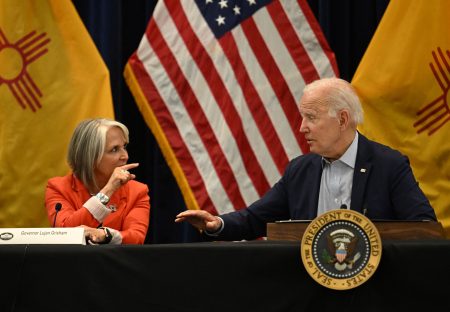President Joe Biden recently signed a foreign aid bill that contains a provision that could potentially lead to a ban on TikTok, the popular video-sharing platform, unless its Chinese owners sell the platform. This move is part of a broader effort to address national security concerns related to Chinese-owned technology companies and their access to American user data and the potential for manipulation. The ban would be implemented if the Chinese owners fail to divest their ownership within a certain timeframe, as specified in the bill.
The issue of potential national security risks associated with TikTok and other Chinese-owned technology companies has been a point of contention for several years, as concerns have been raised about the handling of user data and the potential for foreign influence operations. The United States government has been increasingly focused on addressing these risks and ensuring that American user data is not compromised or exploited by foreign entities. The provision in the foreign aid bill is just one example of the steps being taken to mitigate these risks and protect national security interests.
The potential ban on TikTok is significant because of the platform’s immense popularity among American users, particularly younger generations who use the app to create and share short-form videos. A ban on TikTok would have a significant impact on these users and could disrupt a major source of entertainment and social interaction for millions of Americans. However, the national security concerns related to Chinese ownership of the platform are considered to outweigh the potential negative impact of a ban on American users.
The provision in the foreign aid bill highlights the growing tensions between the United States and China over technology and data security issues. As the two countries continue to compete for global technological dominance, issues related to data privacy, cybersecurity, and national security have become increasingly contentious. The potential ban on TikTok is just one example of the broader geopolitical and technological challenges facing the United States as it seeks to protect its interests and maintain a competitive edge in the digital landscape.
The fate of TikTok and its Chinese owners remains uncertain as the deadline for divestment approaches. It is unclear how the Chinese owners will respond to the provision in the foreign aid bill and whether they will agree to sell the platform to avoid a ban. The situation is complicated by a range of geopolitical, economic, and technological factors, and the outcome is likely to have far-reaching implications for the future of tech companies and data security in the United States and around the world.
Overall, the potential ban on TikTok as a result of the provision in the foreign aid bill reflects the broader national security concerns surrounding Chinese-owned technology companies and their access to American user data. As the United States continues to address these risks and seek to protect its interests in the digital landscape, the fate of TikTok and other Chinese-owned platforms will be closely watched by policymakers, tech companies, and users alike. The outcome of this situation will have significant implications for the future of data security, privacy, and global technological competition.














